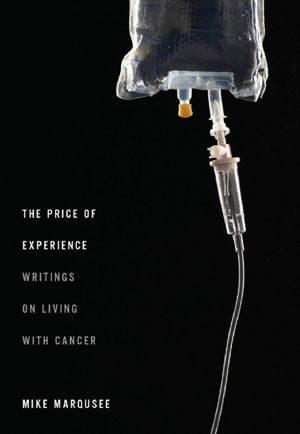The Price of Experience · Writings on Living with Cancer

- Authors
- Marqusee, Mike
- Publisher
- OR Books
- Tags
- bisac code 1: hea039030
- ISBN
- 9781939293442
- Date
- 2014-01-01T00:00:00+00:00
- Size
- 0.42 MB
- Lang
- en
Writer and political activist Mike Marqusee was diagnosed with multiple myeloma, a type of blood cancer, in the summer of 2007. At first, disinclined to share his misery with others, he was reluctant to write about his illness. But he then came to realize that doing so provided a precious continuity with his life as a writer before contracting the disease, and a way of reaching out to a wider world that the illness made physically less accessible. Writing allowed him to address what he saw as a variety of insidious platitudes that surround cancer, often connected to the individualistic idea that the sufferer must be brave in battling the disease, with the inevitable corollary that those who succumb have, in some measure, brought it on themselves.
And so Marqusee begins to write about his illness. Not just his own symptoms and feelings, but the responses of friends to the news that he is ill and the way these reflect broader social attitudes towards the sick. He describes the political struggles occurring in St Bartholomew’s, the London hospital that cares for him, and the crisis in Britain’s National Health Service (NHS) more generally, at a time of harrowing cutbacks. Big Pharma, whose drugs keep Marqusee alive but are sold to the NHS at prices reflecting the power and greed of a ruthless extortionist, is the subject for particularly astringent scrutiny.
Writer and political activist Mike Marqusee was diagnosed with multiple myeloma, a type of blood cancer, in the summer of 2007. At first, disinclined to share his misery with others, he was reluctant to write about his illness. But he then came to realize that doing so provided a precious continuity with his life as a writer before contracting the disease, and a way of reaching out to a wider world that the illness made physically less accessible. Writing allowed him to address what he saw as a variety of insidious platitudes that surround cancer, often connected to the individualistic idea that the sufferer must be brave in battling the disease, with the inevitable corollary that those who succumb have, in some measure, brought it on themselves.
And so Marqusee begins to write about his illness. Not just his own symptoms and feelings, but the responses of friends to the news that he is ill and the way these reflect broader social attitudes towards the sick. He describes the political struggles occurring in St Bartholomew’s, the London hospital that cares for him, and the crisis in Britain’s National Health Service (NHS) more generally, at a time of harrowing cutbacks. Big Pharma, whose drugs keep Marqusee alive but are sold to the NHS at prices reflecting the power and greed of a ruthless extortionist, is the subject for particularly astringent scrutiny.
The observations about cancer in these pages are never trite or sentimental. They are acute, moving, impassioned and political. And they convey important, shared truths, both personal and social, about an illness that will affect one in three people in the course of their lives.